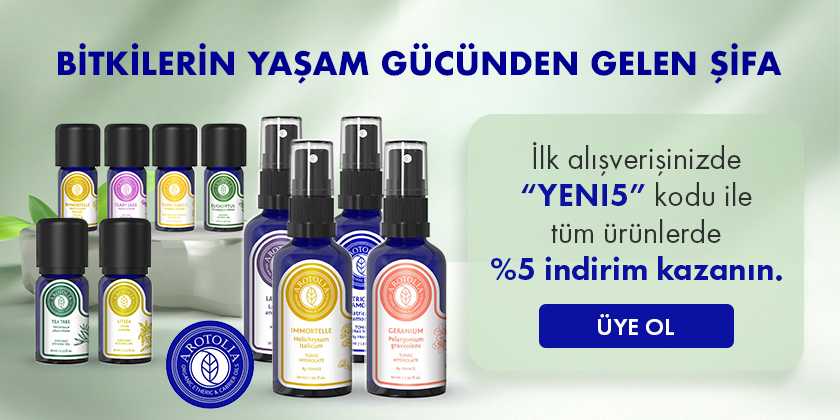
Psychoaromatherapy
Undoubtedly, one of the most common ailments of our age are those of psychological origin. The fact that our emotional state is not good destroys our mental health, and it can also be the underlying cause of some physical problems. Our quality of life decreases, it affects us in all areas from relationships to business life. Did you know that aromatherapy has been concluded to provide a potentially effective treatment for a number of psychiatric disorders? And without the side effects of many traditional psychotropic drugs!
Aromatherapy is the use of plant essential oils for therapeutic purposes and these oils can be taken into the body in three different ways. First, by steam inhalation, namely by smelling and breathing; secondly, through skin absorption with cream and massage applications; the third is with essences put in capsules or by mouth as an additive in food (herbal medicine).
An aroma may contain direct or indirect psychological effects. Even thinking about a scent can have a similar effect to the scent itself. However, much evidence has accumulated that inhaled or dermally ingested essential oils enter the bloodstream and exert measurable psychological effects in relevant molecular, cellular, or animal models. This evidence indicates that these effects of aromatherapy are primarily pharmacological. This conclusion continues to be supported by the increasingly reported benefits of aromatherapy using certain essential oils in the management of chronic pain, depression, anxiety and certain cognitive disorders, as well as insomnia and stress-related disorders.
For example, in a study with mice, the evidence that an environment enriched with aromatic odors increases neurogenesis (new cell formation) in the adult mouse brain is highly impressive. showed that aromatherapy may have long-term protective potential.
Aromatherapy in the USA is the fastest growing of all complementary therapies among nurses and it is now accepted as a legitimate part of nursing in the USA. Studies in psychoaromatherapy have generally focused on dementia. The most used essential oils were lavender and lemongrass, either alone or in certain combinations. As a result of both inhalation and dermal treatments, a reduction in behavioral symptoms such as insomnia, aggression and social withdrawal was observed in inpatient dementia patients.**
Aromatherapy's work on psychology is not limited to dementia, of course. There are also positive results on Parkinson's, which has serious symptoms that make the daily life of the patients difficult.*** A similar study was conducted with patients diagnosed with schizophrenia, and it helped the patients to ease their symptoms and return to their daily lives.
In particular, essential oils with calming effects such as lavender, lemongrass, neroli (orange blossom) and jasmine have pharmacological effects consistent with reducing central nervous system activity. In this way, it can be used for psychiatric patients to continue their daily lives in a peaceful way. It is not limited to these diseases, but also acts as a key helper with positive effects in the treatment of sleep disorders, anxiety and depression.
Click to View Our Essential Oils
SOURCE
*Rochefort C, Gheusi G, Vincent JD, et al. Enriched odor exposure increases the number of newborn neurons in the adult olfactory bulb and improves odor memory. J Neurosci 2002; 22: 2679–89
**Bowles-Dilys EJ, Griffiths M, Quirk L, et al. Effects of essential oils and touch on resistance to nursing care procedures and other dementia-related behaviors in a residential care facility. Int J Aromather 2002; 12:1–8
***Ferry P, Johnson M, Wallis P. Use of complementary therapies and non-prescribed medication in patients with Parkinson's disease. Postgrad Med J 2002; 78: 612–4
Aromatherapy in the Management of Psychiatric Disorders, Clinical and Neuropharmacological Perspectives



